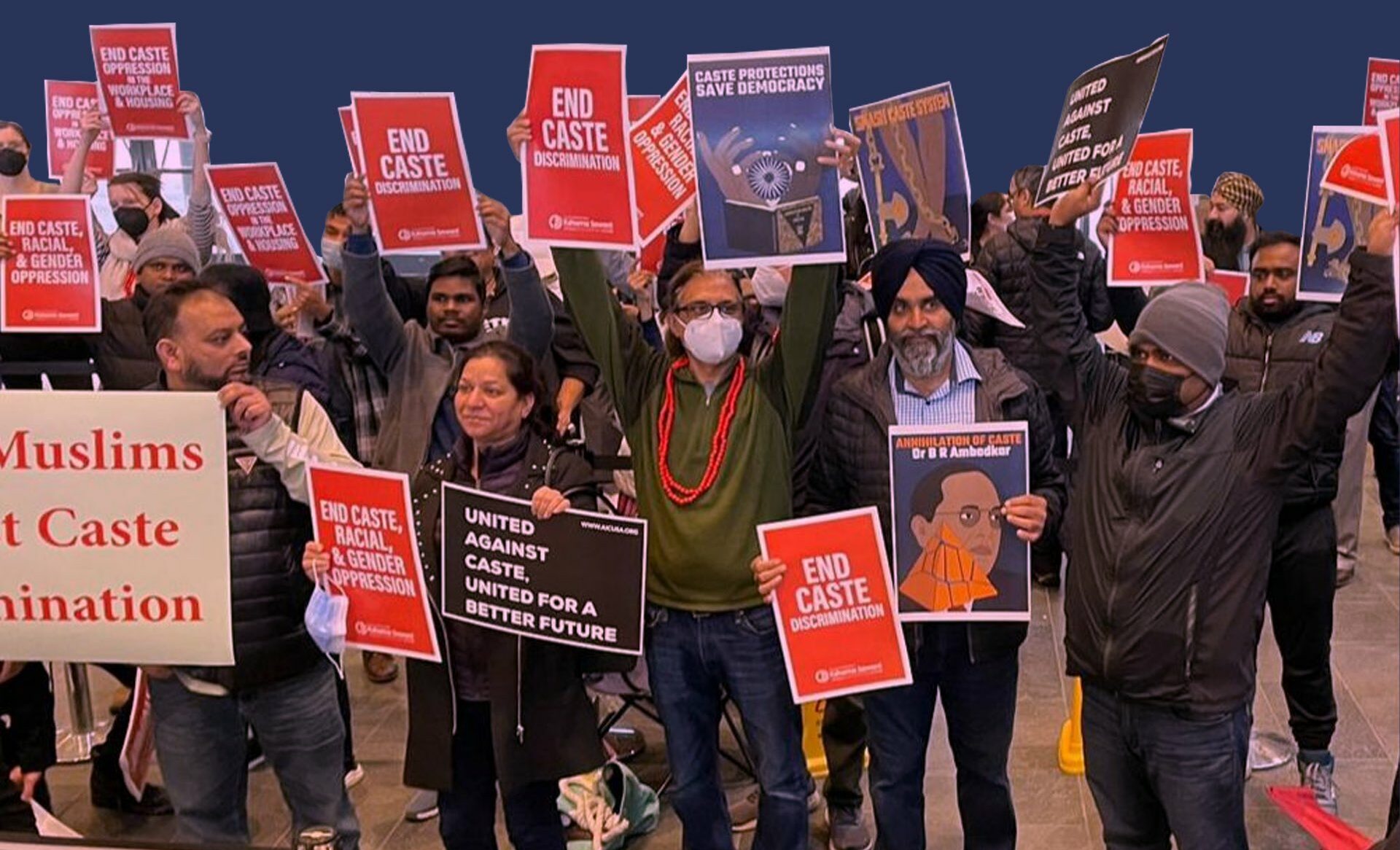The Seattle City Council voted 6-1 to pass the landmark ordinance that bans caste discrimination in the city.

Supporters celebrating passing of the ordinance in Seattle. (Supplied)
In a historic decision which could have far-reaching implications for the Indian-origin community in North America, the Seattle City Council on Tuesday, 21 February, voted 6-1 to pass a landmark ordinance to ban caste discrimination in the city.
City Council member Kshama Sawant had proposed the ordinance on 24 January. Since its introduction in the City Council, the ordinance has received much support both in the US and in India.
On 30 January, Tamil Nadu Chief Minister MK Stalin, tweeted his support for the ordinance calling it a “progressive step to eradicate caste discrimination in any form”.
I congratulate @SeattleCouncil member @cmkshama's historic ordinance to protect over 1,67,000 South Asian people living in the Greater Seattle area from caste discrimination.
Progressive step to eradicate discrimination in any form is really laudable. https://t.co/gratGfXxBH
— M.K.Stalin (@mkstalin) January 30, 2023
The influential South Asian Bar Association (SABA) of North America had also come out in support of the ordinance on 17 February 2023.
As Seattle becomes the first city in North America to pass such a legislation, there could be long-term implications.

Seattle City Council Member Kshama Sawant talks to reporters after the council passed the anti-caste-discrimination ordinance. (Supplied)
“This, of course, has far-reaching consequences. All the companies and govt offices will have to incorporate caste into their policies, conduct caste sensitisation training and be on the lookout for any caste discrimination cases,” Anil Wagde, a member of Ambedkar International Centre (AIC), an organisation representing caste oppressed communities in the US, told South First.
The AIC worked closely with Sawant, the Coalition of Seattle Indian-Americans (CSAI), Equality Labs, the Ambedkarite Buddhist Association of Texas, Boston Study Group, Ambedkar Kings Study Circle, and the Ambedkar Association of North America (AANA) to help draft this landmark ordinance.
Emphasising that now there cannot be plausible deniability or ignorance of the law, Wagde added: “Unlike in the Cisco caste discrimination case, no company can say that caste is not covered by the law. They will have to mandatorily ensure that caste discrimination doesn’t happen in hiring, and in workplaces.”
Pointing out the diversity of people in the council meeting, Wagde said: ”Sikh, Muslim, Buddhists, and Hindu, including enlightened upper caste folks, supported this ordinance.”
The AIC had a key role to play in the now-famous Cisco case involving caste discrimination.
“The AIC filed an amicus brief in the Cisco caste discrimination case after the Hindu American Foundation filed an amicus brief stating the case was insulting Hinduism,” recalled Wagde.
“In AIC’s amicus brief, our stand was simple. Regardless of its origins, caste discrimination is real, and it happens here in the United States. An amicus brief was filed with the help and active participation of like-minded organisations,” he added.
Reflecting on the journey since, he said: “Since the Cisco case, we have been invited by the New Jersey Civil Rights Department, by Washington State University, by Seattle Techworkers Union, to educate them about caste and the caste discrimination.”
Calling it a crucial victory in a long journey to outlaw caste discrimination in all its forms Wagde told South First: “Universities have led the way, and caste is being incorporated in university policies. Now with Seattle City Council having incorporated it as a law, we will work to push similar legislations in other cities too.”
“Seattle has paved the way for social change, justice, and equality. We hope that the rest of the country will follow the suit soon. We are now one step closer to an egalitarian world,” he added.
In fact, some universities and colleges in North America have already added caste to its non-discriminatory policy, explicitly prohibiting caste discrimination on their campuses.
Recently, Ivy league Brown University outlawed caste discrimination following other major universities like Harvard and California state universities.

Jul 26, 2024

Jul 25, 2024

Jul 21, 2024

Jul 21, 2024

Jul 21, 2024

Jul 21, 2024